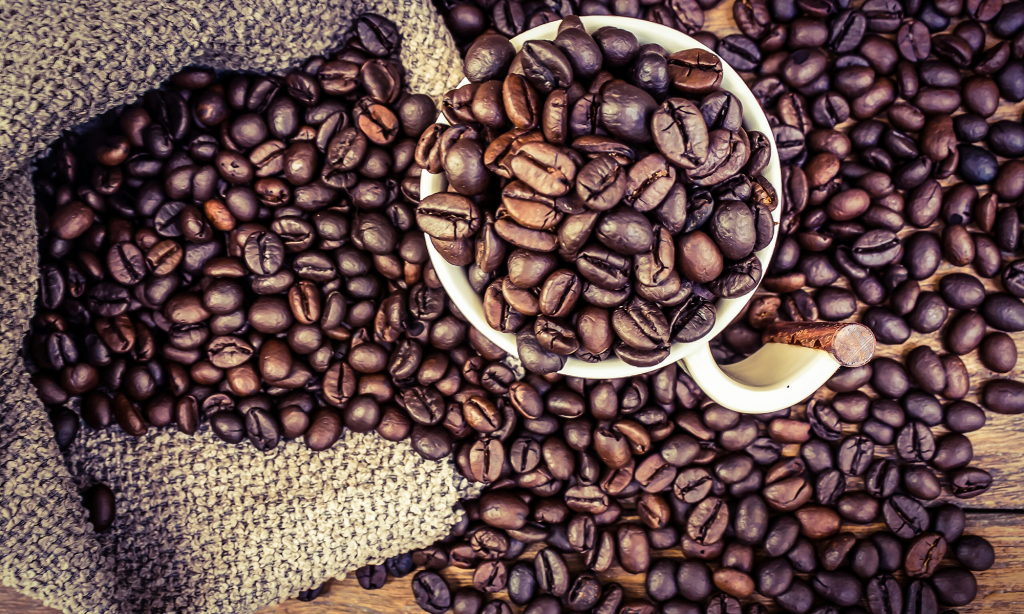Coffee sometimes gets a bad rap. In fact, when many people decide to focus on improving their nutrition, they will often decide to give up coffee entirely. And that’s fair enough if they’ve been drinking those sugary coffee-based concoctions sold at coffee bars across the world but a cup of black coffee has a lot of health benefits.
In fact, coffee is the #1 source of antioxidants in the American diet! But there are some instances where coffee is less than ideal as a health-giving drink, two you can control and one you cannot.
The Many Benefits of Coffee
The British Medical Journal found that consuming coffee in moderate amounts is beneficial. Moderate drinkers have less cardiovascular disease and lower rates of premature death from all causes including heart attacks and strokes when compared to non-coffee drinkers.
Coffee is especially powerful when it comes to protecting us from Type 2 diabetes, Parkinson’s disease, and conditions that impact the liver including cirrhosis, cancer, and chronic liver disease.
These benefits are thought to come from the polyphenols in coffee, plant compounds that have antioxidant properties.

The Poison is in the Dose
It’s possible to turn nearly anything from healthful to harmful if it’s overdone to a crazy degree. It’s possible to drink so much water that it kills you. And if you’ve ever had a burst of inspiration to start exercising after a long period of inactivity, you know this. The sprains, tears, or stress fractures you might have experienced are a testament to that!
The same is true for coffee. The amount that seems to be beneficial is about 3 to 5 cups per day with a maximum intake of 400 milligrams of caffeine. The amount of caffeine varies according to the type of coffee but the average 8-ounce cup of drip coffee that you would make at home has about 95 milligrams.
When you consume more than 400 milligrams of caffeine per day (From all sources, not just coffee. Things like some teas, colas, some energy drinks, and chocolate also contain caffeine.) you can experience things like shakiness, anxiety, nervousness, and an irregular heartbeat. Too much caffeine can also negatively impact your sleep.
Very high doses of caffeine can cause death but that is typically caused by over-consuming caffeine pills or powder, not from drinking coffee.

How Do You Take It?
Just like having too much of a good thing can make it bad for us, adding certain things can do the same. We know of course that adding things like sugar, whipped topping, and sickly sweet syrups to an innocent cup of black coffee is not good for us but what about some nice wholesome cream? Surely that can’t be bad!
Studies show that dairy proteins bind to many antioxidants which makes them less effective. Studies have shown that when pomegranates, blueberries, strawberries and other fruits high in antioxidants, those antioxidants lose their potency. A study involving pomegranates and milk showed that more than 80% of the pomegranate’s antioxidants bonded to the dairy proteins meaning there was an 80% reduction in antioxidants.
What does that mean for coffee and dairy? There is currently no published research on whether or not the effects are the same but it doesn’t seem like a stretch that the same effect applies.

Slow and Fast
When it comes to coffee, there are two kinds of people; those who metabolize caffeine slowly and those who metabolize it fast. The difference is in our genes. There are two versions of the same gene, CYP1A2. It codes for an enzyme that helps us break down caffeine. People with the “slow” version metabolize it quickly and those with the “fast” version metabolize it fast.
How caffeine consumption impacts you depends on which version of the CYP1A2 gene you have. Slow metabolizers who drank multiple cups of coffee daily were more likely to have a heart attack. The fast metabolizers got the cardiovascular protection mentioned at the top of the article.
How can you tell if you’re fast or slow? You can have a genetic test but you can be your own detective for free! How do you feel several hours after drinking coffee? Jittery and wired? You’re likely a slow metabolizer. Or do you feel alert and full of energy? You’re likely a fast metabolizer.
What To Do?
By and large, the benefits of coffee outweigh the negatives. If you’re drinking a couple of cups of black coffee a day, keep it up! If you’re drinking sugary coffee drinks, any benefits of the coffee are totally negated by the other ingredients. And it’s never a good idea to drink your calories.
What if you drink coffee with whole milk or cream? Try to gradually reduce the amount you add until you enjoy your coffee black. Maybe save the cream for special occasions and drink it black day to day.
If you think you might be a slow metabolizer and have a family history of cardiovascular disease and heart attacks, it might be worth spending money to be genetically tested.
If you would like Personalized Recommendations or Comprehensive Consultation session with evaluation of your Nutritional, Hormonal, Digestive or Head-to-Toe Wellness, please follow this link to book an appointment.
